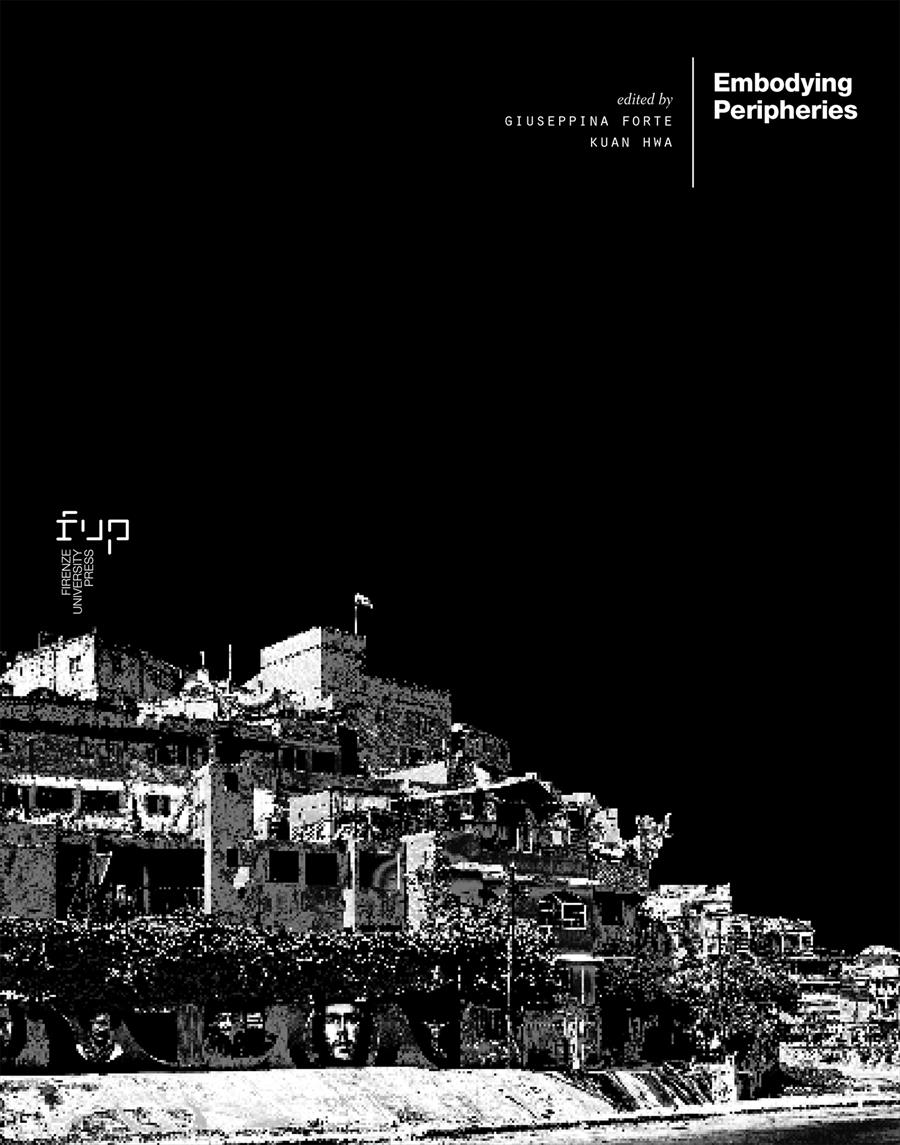- Embodying Peripheries
- Edited by Giuseppina Forte, Kuan Hwa
Global urban humanity – the “embodiment” of embodying peripheries
- Kuan Hwa
- © 2022 Author(s) |
- CC BY-NC-ND 4.0
- DOI: 10.36253/978-88-5518-661-2.01
Human "embodiment" is a polysemous term that has rich multi-, inter-, and transdisciplinary dimensions from various histories of consciousness. As a paradigm for various methodologies, it emphasizes the lived experience and the immanence of the human condition, especially regarding sensory habitus, bodily ways of knowing, and the material-social dimension of humanity within a historically/geographically situated context; it validates all people as bearers of their own insight and knowledge, and emphasizes that experience itself serves as a phenomenological basis for understanding. Embodiment is thus not reducible to an abstract philosophical project, but rather holds possibilities for a practical and applied ethics. In the context of peripheries, embodiment can be understood as the commitment to marginalized communities and teaches us both the scientific and humanistic value of compassion.
- Keywords:
- embodiment,
- praxis,
- body memory,
- intercultural phenomenology,
- critical theory of the senses,
University of California Berkeley, United States
- Abu-Lughod J. L. 1999, New York, Chicago, Los Angeles: America's Global Cities, University of Minnesota Press, Minneapolis, MN.
- Ahmed S. 2006, Queer Phenomenology, Duke University Press, Durham, NC.
- Appadurai A. 1990, “Disjuncture and Difference in the Global Economy,” Theory, Culture & Society, 7, pp. 295–310.
- Bachelard G. 2014 [1957], The Poetics of Space, Penguin Books, London.
- Bourdieu P. 2013, “The Dialectic of Objectification and Embodiment,” Outline Towards a Theory of Practice, Cambridge University Press, pp. 87-95.
- Casey E. 1998, “The Ghost of Embodiment: On Bodily Habitudes and Schemata,” in Welton D. (ed.), Body and Flesh, Oxford: Blackwell, pp. 207-225.
- Centers for Educational Justice & Community Engagement, “Ohlone Land,” University of California, Berkeley, <https://cejce.berkeley.edu/ohloneland>.
- Csordas T. 1990, “Embodiment as a Paradigm for Anthropology,” Ethos, 18(1).
- Du Bois W. E. B. 2010 [1899], The Philadelphia Negro, Cosimo, New York.
- Fanon F. 1967, Black Skin White Masks, Fanon, Grove Press, New York.
- Go J. 2016, Postcolonial Thought and Social Theory, Oxford University Press, New York, pp. 185-186.
- Harney S., Moten F. 2013, The Undercommons: Fugitive Planning and Black Study, Minor Compositions, New York.
- Haugeland J. 1993, “Mind Embodied and Embedded,” Mind and Cognition: 1993 International Symposium, Academica Sinica, pp. 233-267.
- Heidegger M. 1972 [1927], Sein und Zeit, Niemeyer, pp. 179-328.
- Hernández E. D., Alvarez Jr. E. F., García M. 2021, Transmovimientos: Latinx Queer Migrations, Bodies, and Spaces, University of Nebraska Press, Lincoln, Nebraska.
- Husserl E., Rojcewicz R., Schuwer A. (trans.) 1989, Ideas Pertaining to a Pure Phenomenology and to a Phenomenological Philosophy: Second Book, Studies in the Phenomenology of Constitution, Kluwer Academic Publishers, Alphen aan den Rijn, Netherlands.
- Husserl E. 2014, “Selected writings,” in Shapiro L. (ed.), The Routledge Handbook of Embodied Cognition, Routledge, London.
- Lugones M. 2010, “Toward a decolonial feminism,” Hypatia, 25(4), pp. 742-759.
- Mauss M. 1973 [1934], “The Techniques of the Body,” reprinted in Economy and Society, 2(1), pp. 70-88.
- Marx K. 1922, “Economic and Philosophical Manuscripts of 1844,” Early Writings, Penguin Books, pp. 322-390.
- Merleau-Ponty M., Landes D. A. (trans.) 2014, “Part One.” The Phenomenology of Perception, Sections I-IV, Routledge, pp. 95-190.
- Moore E., Montojo N., Mauri N. 2019, Roots, Race, and Place: a History of Exclusionary Housing in the San Francisco Bay Area, Haas Institute for a Fair and Inclusive Society, Berkeley, CA, pp. 10.
- Mbembe A., Dubois L. (trans.) 2017, Critique of Black Reason, Duke University Press, Durham, NC.
- Nichols R. 2019, Theft Is Property! Dispossession and Critical Theory. Durham, NC: Duke University Press, Durham, NC.
- Quijano A. 2007, “Coloniality and Modernity/Rationality,” Cultural Studies, 21(2-3), pp. 168-178.
- Sartre J. P., Barnes H. E. (trans.) 1984 [1943], Being and Nothingness, Washington Square Press, New York.
- Simmel G., Frisby D., Featherstone M. (eds.) 1997, “Sociology of the Senses,” Simmel on Culture, Sage Publication, pp. 109-119.
- Shrivastava A., Kothari A. 2012, Churning of the Earth: The Making of Global India. Penguin Global, p. 28.
- Vargas D. R. 2014, “Ruminations on Lo Socio as a Latino Queer Analytic,” American Quarterly, 66(3), pp. 715-726.
- Williams P. 1998, Seeing a Color-Blind Future: The Paradox of Race, Farar, Straus, Giroux, New York.
- Wolfe P. 2006, “Settler Colonialism and the Elimination of the Native,” Journal of Genocide Research, 8(4), pp. 387-409.
- Yeoh B. 2006, “Mobility and the City,” Theory, Culture, and Society 23(2-3), Sage, pp. 150-151.
Chapter Information
Chapter Title
Global urban humanity – the “embodiment” of embodying peripheries
Authors
Kuan Hwa
Language
English
DOI
10.36253/978-88-5518-661-2.01
Peer Reviewed
Publication Year
2022
Copyright Information
© 2022 Author(s)
Content License
Metadata License
Bibliographic Information
Book Title
Embodying Peripheries
Editors
Giuseppina Forte, Kuan Hwa
Peer Reviewed
Number of Pages
304
Publication Year
2022
Copyright Information
© 2022 Author(s)
Content License
Metadata License
Publisher Name
Firenze University Press
DOI
10.36253/978-88-5518-661-2
ISBN Print
978-88-5518-660-5
eISBN (pdf)
978-88-5518-661-2
eISBN (xml)
978-88-5518-662-9
Series Title
Ricerche. Architettura, Pianificazione, Paesaggio, Design
Series ISSN
2975-0342
Series E-ISSN
2975-0350
